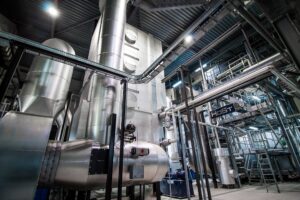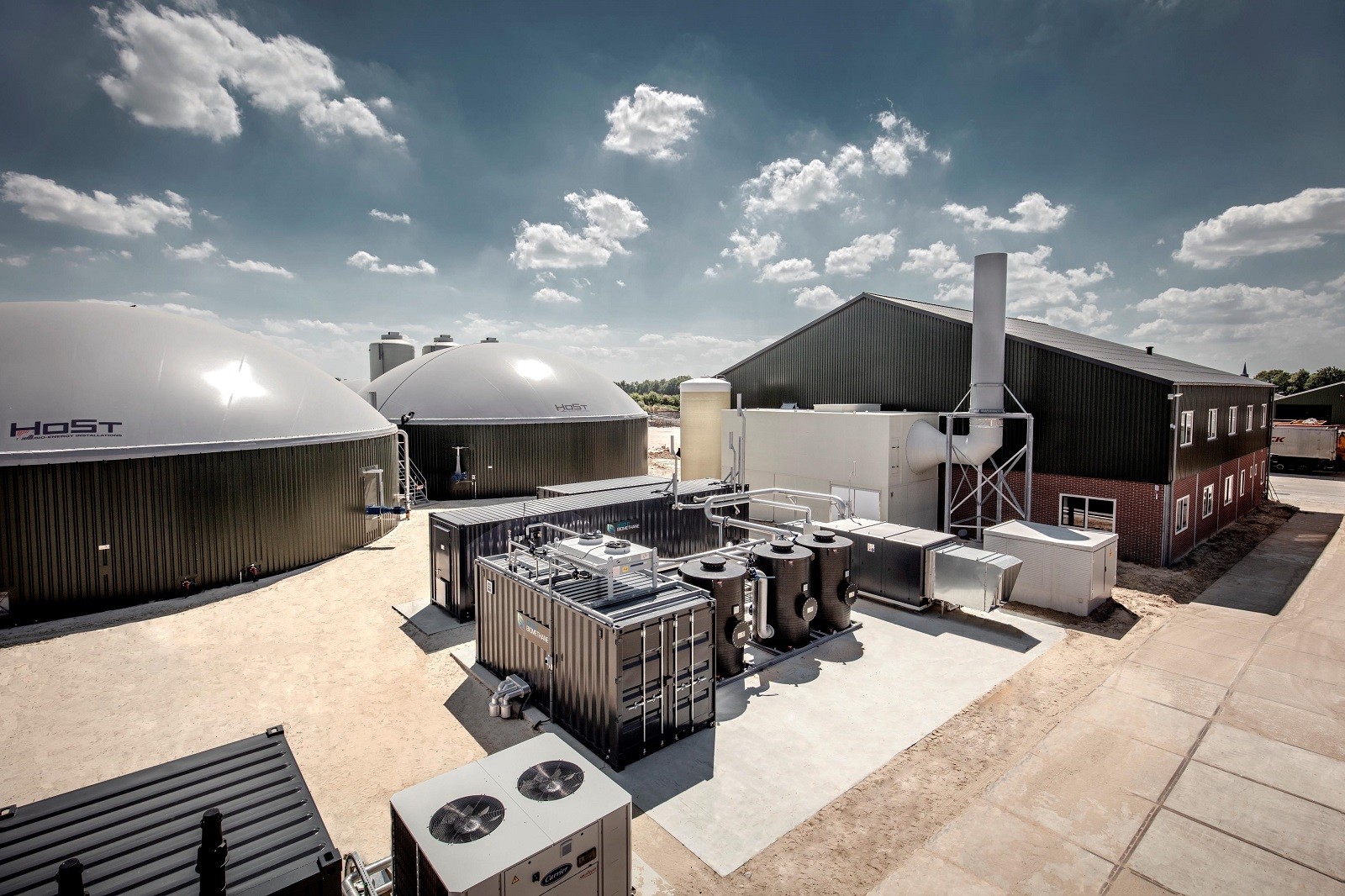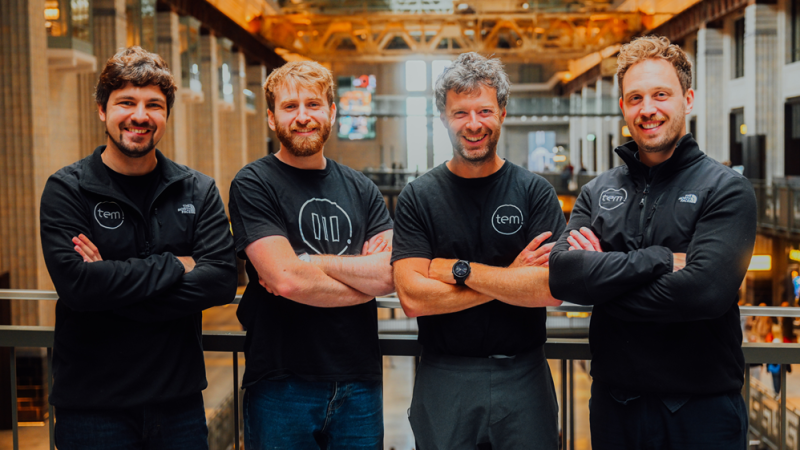HoSt Group, a large, fast-growing family company founded in 1991 by Herman Klein Teeselink, is committed to being at the forefront of the circular decarbonized economy by investing deeply in technology and technology synergy. In 2020, the second generation of the family joined the board of directors as Herman handed over the baton to his son and current CEO Jelle Klein Teeselink.
“We specialise in the generation of renewable energy and valuable end-products from residuals using advanced, eco-friendly technology, reinforced by the recent acquisition of a leading global hydrogen firm to expand our portfolio,” says Jelle Klein Teeselink. “With a strong in-house R&D capability, we utilise proprietary integrable technologies that complement each other to improve operations, profitability and sustainability.”
The company employs over 400 people in seven offices across several countries in Europe and Asia and has a rapidly growing office in the US. Over the years, HoSt has built over 400 systems in more than 45 countries. In addition to developing technologies and building facilities, HoSt also offers 24/7 service and maintenance and renewable-energy-as-a-service for heat, electricity and renewable gases.
At the forefront of innovation
HoSt’s core portfolio is a set of carbon-neutral and carbon-negative clean energy technologies for decentralised renewable gas, renewable heat, renewable power generation, carbon capture, and recently also hydrogen generation.
HoSt’s technologies are innovative and continuously improving. An example is the thermal conversion technology to produce renewable heat and electricity, in which the firm has realized the  Netherlands’ cleanest industrial cogeneration plant in terms of emissions and efficiency, fired with locally produced wood waste.
Netherlands’ cleanest industrial cogeneration plant in terms of emissions and efficiency, fired with locally produced wood waste.
Other types of green technology have also been successfully developed. In addition to the production of heat, power, and biomethane, HoSt has developed an in-house CO2 liquefaction technology and carbon capture technology under the brand name Bright Renewables to produce liquid or gaseous (food-grade) CO2 while reducing carbon emissions.
The carbon capture captures CO2 from flue gases from combustion plants. The liquefaction technology is unique in using clean circular cooling with CO2 from its own process as a refrigerant, without the use of any Freon or ammonia. Under the ‘Bright’ brand, HoSt also offers biogas upgrading, bioLNG technology, and biomethane as a service.
“At HoSt, we foster a culture of innovation and standardisation and pride ourselves on developing all our technologies in-house. Our commitment to research and development ensures that our technologies are cutting-edge, and we are continually exploring new ways to improve and promote reliable and secure sustainable energy.”
Handling the challenge
HoSt acknowledges the importance of its workforce and regards them as the core of the organization. To maintain top-notch talent, the company partners with universities for research and development projects, provides internships and traineeship opportunities throughout the year and conducts events to onboard employees, and celebrate employee accomplishments and milestones.
In this context, the CEO admits that as in most companies in today’s Europe, labour shortages are an issue but one that can be handled well unlike the major challenge of these days – the war in Ukraine, with a devastating impact on the country’s energy system.
“HoSt recently built a biogas plant in Ukraine, is currently realizing a second one, and is building three biogas upgrading projects. The biggest challenge was project realisation in a territory at war. Thanks to remote and virtual technology, our project managers, engineers and technicians could connect with the people on-site to make the projects a success.”
“We are dedicated to working closely with local communities, businesses, and governments to drive positive change and make a tangible impact on the ground. By leveraging our expertise, technology, and resources, we are confident that we can help Ukraine and other regions in crisis overcome their energy challenges and pave the way for a brighter and more sustainable future for all.”
Green path into the future
M Klein Teeselink affirms that the company strategy is well-defined. “A very important road to walk for the HoSt Group is the Energy as a Service offering (ESCO). This will enable clients to keep focussing on their core business, while HoSt owns and operates the system and facilitates their sustainability ambitions. Biogas can be upgraded to biomethane with the use of a biogas upgrader, and renewable heat and electricity can be produced from waste wood or RDF.”
Hydrogen is another area of focus. HoSt has expanded its portfolio with hydrogen technology through the acquisition of HyGear, completed early this year. This combination of both companies’ respective energy technologies should expedite the development and deployment of renewable gases and hydrogen.
“Renewable natural gas, produced from organic waste by means of anaerobic digestion and biogas upgrading, can be converted to renewable hydrogen with a carbon negative footprint. Renewable gases that replace high-emission finite fossil fuels, and the hydrogen revolution all help to support a low-carbon economy and energy system.”
“Furthermore, HoSt is eager to take advantage of HyGear’s strong presence in Asia with its office in Singapore. The two companies are looking forward to a successful partnership that will help them achieve their shared aim of reducing carbon emissions.”
Scaling up globally
Mr Klein Teeselink affirms that HoSt is committed to seizing opportunities wherever they may arise. By staying true to its vision of creating a more sustainable future and maintaining its focus on innovation and growth, the company is poised to further increase its position as a major player in the clean energy sector in the years ahead.
Right now, HoSt is rapidly scaling up its presence in the United States. The company aims to expand its operating portfolio throughout Europe and other areas of the world to establish a strong foothold in these markets.
One of the key pillars of this strategy is to leverage its existing technologies and know-how to make a significant impact in the push toward a zero-waste society and to promote the adoption of cleaner forms of energy. In pursuing this goal, the company aims to double its size every three years. This will be achieved by a combination of organic growth and expanding its range of products, services and technology synergy.






